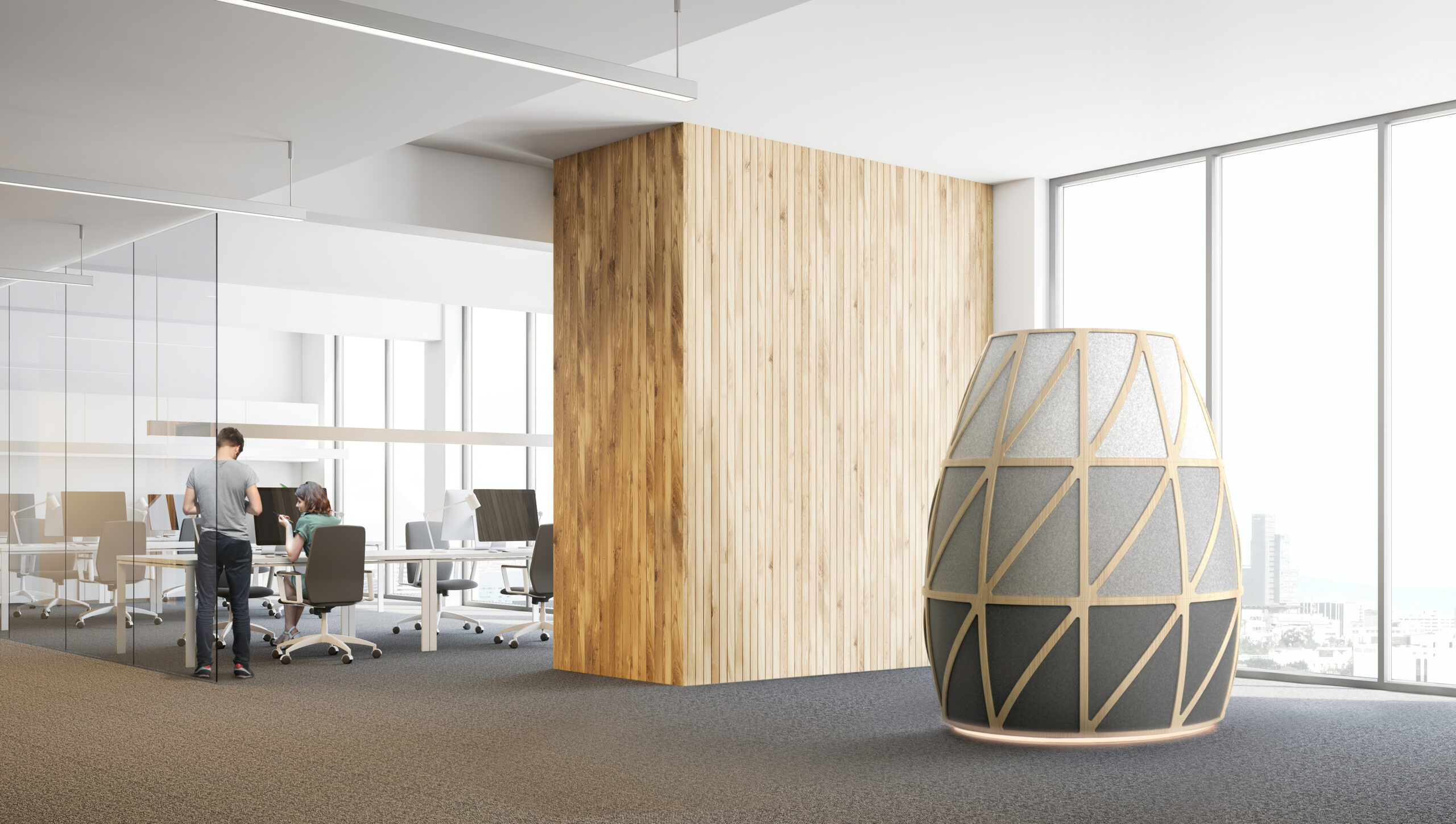OpenSeed, a developer of meditation pods for the workplace, partnered with author Deepak Chopra and designer Yves Behar to launch a new pod called Iris.
The meditation pod is made with sustainable materials and integrates light, sound, guided meditations and aromatherapy, according to Jonathan Marcoschamer, Founder and CEO of OpenSeed.
In an interview with Subtle, Marcoschamer said their mission is to make it easier for millions of people in the workplace and hospital lounges, among others, to meditate and access “higher states of awareness and wellbeing.”
“Ultimately our mission is to improve the lives of millions of people through meditation. And essentially what we’re doing is, we have developed a new way — a new technique to deliver meditation,” said Marcoschamer.
He said the new Iris pod was tested on more than 2,000 people. Employees that wish to meditate can simply walk in, close the door, sit down and select a meditation experience offered through the screen in the pod. These range from five to twenty minutes.
“You have a menu to select your experience, and then you sit back and let the pod do the rest,” said Marcoschamer. “What we’ve designed in the back end is the experience, the music, the guided meditations, but also we’re synchronizing it with lighting.”
The company has done testing on various pod prototypes over the years, in the United States and in Japan. For example, Marcoschamer said the pods were used in Japan to conduct a study on the effectiveness of micro-environments that includes sound, light, and aromatherapy — the goal being to observe if and/or how (and perhaps to what extent) it can help calm the nervous system and reduce stress.
According to OpenSeed’s coverage of the study, participants were tested with heart rate monitors, electroencephalograms (EEGs), and surveys.
The study was supervised by Dr. Michihito Sugawara, Director of Sugawara Neurosurgery Clinic, and conducted at the headquarters of Tokyu Fudosan Holdings over a period of three weeks, with 30 participants divided into three groups: Group A meditated in the pods, while Group B meditated without pods, and Group C did not meditate at all.
Overall, the study found that participants that meditated in the pods had a greater potential to more quickly and effectively quiet their mind and reduce stress.
“Lighting has therapeutic effects, and we use it in different ways. One, for example, for breathing cues. Most people don’t know how to do breath work, and so they need some cues like lighting [and] sound, to help them breathe in for five seconds and then breathe out,” said Marcoschamer.
He adds that there are many ways of using light and other modalities together to help induce calmness.
The idea to launch the company came to him years ago, when he was sitting in a noisy office with nowhere to meditate. At the time, Marcoschamer envisioned a self-standing structure or micro-environment that integrated key therapeutic modalities. Years later, he launched OpenSeed, in 2018.
Yves Behar designed the new pod, Iris, which includes guided meditations by Deepak Chopra. A three-year partnership with Chopra was announced in April 2022, the same time the new pod was announced, and involves marketing support, advisory content development, and research. On the content side, Marcoschamer said they are developing a series of meditations exclusively produced for their pods. He is also eyeing the potential for more research, likely in 2023.
“We want to go much deeper into the science,” said Marcoschamer, adding that “we’ve done two studies: we had a 10-month pilot in Miami that we did, and we did a three-week study with a neuroscientist in Japan — but we want to go much deeper as we’re developing more technology and improving the product. The idea is to conduct more studies, and Deepak has the team and obviously the methodology to help guide us through that.”
As for OpenSeed’s roadmap, Marcoschamer said they have plans to personalize the experience with artificial intelligence, through heart rate, through EEG, and other technologies.
“We can add a lot of bells and whistles, and our customers will have the option of integrating different technologies to quantify the experience and provide feedback and track [their] progress over time,” said Marcoschamer, adding that the basic experience is “very simple, intuitive, and very powerful.”
The company is currently in the pre-order phase and plans to officially launch the Iris pod during the first quarter of 2023.

